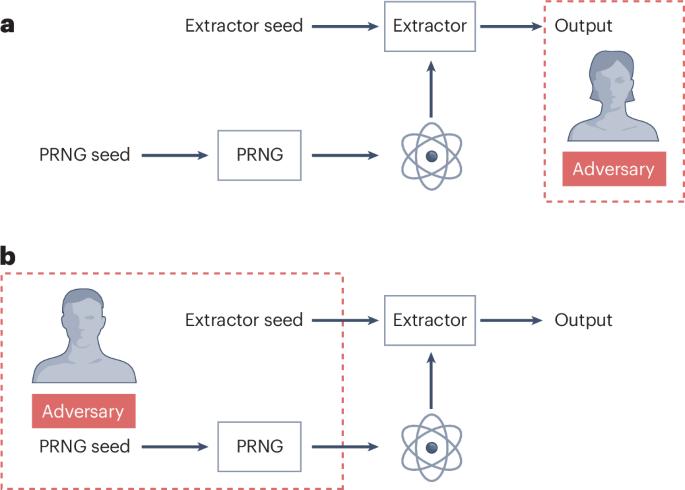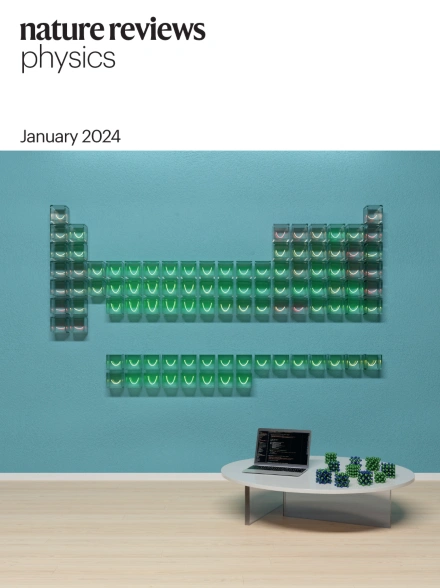证明随机性的应用
IF 39.5
1区 物理与天体物理
Q1 PHYSICS, APPLIED
引用次数: 0
摘要
随机性的使用在我们的社会中无处不在,包括陪审团的选择、数字通信的加密以及许多其他活动。然而,在许多应用程序中,存在恶意行为者影响或预测随机性的动机。因此,如果随机的可信性、不可预测性和安全性可以被任何不信任随机提供者的参与者证明,这是有益的。可以使用多种已知协议在不受信任的远程量子计算机上生成认证随机性,其中一种最近已经在实验中实现。与当今经典计算机上可访问的随机源不同,这些协议的输出可以在一定的计算硬度假设下被证明是随机的,而不需要信任生成随机性的硬件。在这个视角中,我们探索了使用经过认证的随机性协议可以提高安全性和公平性的现实世界应用程序。我们在密码学、差分隐私、金融市场和区块链等领域确定了有前景的应用。随机性在许多应用程序中使用,其中不可预测性通常对确保公平性和安全性至关重要。本展望讨论了量子计算如何生成可被任何参与者验证的经过认证的随机性,并介绍了可以从中受益的几个应用。本文章由计算机程序翻译,如有差异,请以英文原文为准。

Applications of certified randomness
The use of randomness is ubiquitous in our society, including jury pool selection, encryption of digital communications, and many other activities. However, in many applications, there is an incentive for malicious actors to influence or predict the randomness. Therefore, it is beneficial if the trustworthiness, unpredictability and security of the randomness can be certified by any participant that does not trust the randomness provider. Certified randomness can be generated with untrusted remote quantum computers using multiple known protocols, one of which has recently been realized experimentally. Unlike the randomness sources accessible on today’s classical computers, the output of these protocols can be certified to be random under certain computational hardness assumptions, with no trust required in the hardware generating the randomness. In this Perspective, we explore real-world applications for which the use of certified randomness protocols may lead to improved security and fairness. We identify promising applications in areas including cryptography, differential privacy, financial markets and blockchain. Randomness is used in many applications where unpredictability is often paramount to ensure fairness and security. This Perspective discusses how quantum computation can generate certified randomness that can be verified by any participant and introduces several applications that can benefit from it.
求助全文
通过发布文献求助,成功后即可免费获取论文全文。
去求助
来源期刊

Nature Reviews Physics
Multiple-
CiteScore
47.80
自引率
0.50%
发文量
122
期刊介绍:
Nature Reviews Physics is an online-only reviews journal, part of the Nature Reviews portfolio of journals. It publishes high-quality technical reference, review, and commentary articles in all areas of fundamental and applied physics. The journal offers a range of content types, including Reviews, Perspectives, Roadmaps, Technical Reviews, Expert Recommendations, Comments, Editorials, Research Highlights, Features, and News & Views, which cover significant advances in the field and topical issues. Nature Reviews Physics is published monthly from January 2019 and does not have external, academic editors. Instead, all editorial decisions are made by a dedicated team of full-time professional editors.
 求助内容:
求助内容: 应助结果提醒方式:
应助结果提醒方式:


